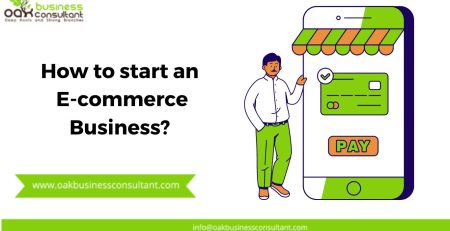How to Start a Business from Home?
A Comprehensive Guide About How to Start a Business from Home?

Starting a business from home is a hit trend nowadays. Lots and lots of people are exploring means to break the work paradigm and start a business from home. Working from home has a number of benefits. It provides one with flexibility and peace of mind. You can decide your own work hours and adjust them around your everyday life. Consequently, you are your own boss. Moreover, you are at no risk of getting fired. And along with all that, you are financially sound, and your business reputation is improving day by day. It is a win-win situation.
Financially, people do save a lot when working from home for their business. According to research, commuters spend about $8466 on average per annum, which sums up to 19% of annual income on average. Along with that, a large chunk of salary is spent on wardrobe. People have to look good in their attire. They spend a boatload of money on clothes, shoes and accessories for their offices. Business from home saves all this money.
But the best perk of running a business from home is work-life balance. You can have the pleasure of being with your family while also earning money at the same time. Additionally, You can enjoy your meal, do exercise and talk to a friend without the stress of rushing back to the office. Furthermore, You can adjust your own hours. You are a morning person? Work in the morning. Are you a night owl? Work at night. No worries.
However, starting this journey is not a kid’s play. It takes a lot of commitment, proper planning, a grasp of the market and continuous work. The advantages of running a business from home are mouth-watering, but success in such endeavors is subject to one’s thorough preparation and smart decisions. But do not worry; we are here to help you start a business from home. This article is your guiding star towards starting a business from home and then making it a successful one.
Assessing Your Business Idea: A Guide to Laying Strong Foundations

Starting a business from home is a step of joy as it enables you to have a perfect blend of professional and personal life. Nonetheless, the basis of this successful venture is a successful idea. Only a solid business idea can form a strong concrete foundation for your business. Your business must be market viable, it should have a demand, and you should have sound expertise to pull this idea. Make sure to assess market competitors in this process. Keep in mind that you can not compete with big sharks while sitting in your home.
The Importance of a Viable, Marketable Idea
Decide what you want to offer to your customers. Settle down on one profitable home business idea. There is a wide range of business ideas to choose from. Decide which type of business you are interested in starting. You can start a service based business from home. If you have expertise in the beauty industry, you can start offering beauty treatments in any specially maintained area of your home.
Pet sitting is a good option, too. Pet owners are continuously looking for pet sitters. According to research in 2022, the pet sitting market had a value of 2.48 million. If you are an expert in any field, you can offer consultancy services related to this field. Although traditional brick-and-mortar businesses are not managed from home. You can launch an online business where people can place orders and pick from your place. Are you an event person who is good with cameras? Start a photography business.
If dealing with people and negotiating with them is the area you shine, you can start virtual assistance or customer service business. If you are a digital nomad, you can start your website builder and digital marketing business from home. Along with that, there are also new online marketplaces that allow you to sell on their platform. You can start a dropshipping business. You can sell digital products or homemade products from an ecommerce business. If you have a knack for writing, you can offer online services related to SEO or start an affiliate marketing business. When coming to ideas, the sky’s the limit. The critical thing to consider is what your expertise is?. Stick to what you know best. It is where you’ll shine and build something amazing.
Conducting Market Research
The next step in starting a home-based business is market research. You need to analyze market trends and also need to make sure the product you intend to sell or the service you want to provide has a demand. Remember, you can not sell ice in the Arctic region or hot chocolate in the Sahara Desert. You can not run a coffee shop successfully in a zone that does not allow such activities. For sure, you need commercial space for that. You need to study about your industry, its demand and its legal structure.
You need to do a thorough study of your competitors, too. Who are they, what are they selling for, and what is their marketing and business strategy? How does your product or service compare to them? Is there any market gap that you can address? Can you identify any unique selling point for your business? Thorough market research enables you to answer all these questions.
Identifying Your Target Audience
Now, you are ready to identify your target audience. You will explore your target customer, who they are, what their needs are, their demographics, behavior, and preferences. Along with that, you need to build a buyer persona around your potential customers. You need to understand your buyer journey. This information will help you tailor your product or service to customer needs. You will get insights about product marketing and how to make customers aware of products or services. How will you move your potential customer from the consideration stage to the decision stage and from there to the loyal audience stage?
SWOT Analysis: Evaluating Your Business Idea
A swot analysis offers business insights about internal and external strengths and weaknesses.
- Strength: What are your product’s strengths? What is its unique selling point? This can be any feature that makes it unique from other existing products or services.
- Weakness: This is evaluation of internal weaknesses of a business. Basically, they are the weak link in the chain; they can be a poor supply chain, lack of necessary equipment, or operational incapability.
- Opportunities: Opportunities arise when market trends change. You see any gap left by your competitors that you can fill by your product or service. Identify those and try to capitalize on them.
- Threat: These are external factors that can affect your business like increased competition, economic condition in your country, etc.
You need to do a thorough analysis of your domain before you leap.
Crafting a Business Plan: Your Blueprint for Success
Now, when you have curated an idea for your business, you need to have a well-thought-out business plan. This plan is not just paperwork; it is a roadmap to turn your small business into a flourishing enterprise. It is like a guiding star to let you know where you are now and where you need to envision your business in future, including detail to each step in between.
The Significance of a Detailed Business Plan
A comprehensive business plan is invaluable. It is an important document for communicating your business vision to your partners, investors, and stakeholders. Business plan helps you anticipate upcoming challenges and devise strategies to overcome them. It turns your home business idea into a sustainable business model with all the ingredients for success.
Business plan tailored to specific home based constraints.
Important parts of the business plan that you need to address are as follows:
- Executive Summary: It is the extract of a complete business plan containing mission and goals.
- Business Description: Describe what your business does, what problem it solves and which market it targets.
- Market Analysis: It includes a market analysis summary that we did to validate our idea, like market trends, competitor analysis and target audience.
- Organizational Management: In this part, you will introduce business owners and your key team members, as well as their skills and roles.
- Sales Strategies: You will discuss how you plan to sell your product or service. Which market strategies will you use to make your audience aware of your business, and how will you convert them to customers?
- Funding Requirements: This part is needed if you need funding for your business. You will clarify whether you need funding and, if so, why. You also need to clarify for which purpose you intend to use this funding.
- Financial Projections: Develop a financial plan for your business. Provide a financial forecast and show its financial performance. Include income statements, cash flow statements, and balance sheets for the next few years.
Craft your business plan while considering your unique working environment in mind. Emphasize the perks and benefits of a home-based business; how will this help your business? Also, address any potential challenges like space limitation and zoning laws in your business plan and how you plan to overcome them. As you are working from home and not from any commercial space, you need to make people aware of your product or service. Include in your plan how you intend to do this.
Legal and Administrative Setup

The next step is to register your business. Registering your business provides a legal entity that is a source of credibility for your business. Though this step may look complex, once you develop an understanding of your business type, it becomes a piece of cake.
Choosing the Right Business Structure
A fundamental requirement before starting a business is to choose a suitable business structure for your business. There are a number of options available, each has its own benefits and its own challenges. Whether you are planning on a sole proprietorship or a limited liability company (LLC), you need to decide based on your business vision and needs. Each type has different implications in terms of taxation and operational flexibility. Most businesses require business insurance, so do check insurance requirements. Hire a good business lawyer; he can help you do all these tasks.
Register your business and obtain a business license
Now, it’s time to decide a name for your business. Make sure it is a catchy one that is easy to remember and relatable to your business. You may also need to register a trademark for your logo. Your logo also should be a grasping one. We are living in a digital era, and even if your business is based in any specific locality, having a strong online presence is preferred. Buy a domain for your website and set it up according to marketing standards.
Understanding Zoning Laws for Home-Based Businesses
As you intend to run a business from home, you need to double-check which businesses are allowed in your zone. Maybe your friends say your coffee leaves behind Starbucks, but you can not start a coffee shop in any place. You need to check if such kind of business is legal in your area.
There are majorly 3 zones,
- Residential
- Commercial
- Mixed one
See in which zone your home is located and which type of businesses are allowed in this zone.
Setting Up Your Home Office
The home office is a special part of your home now. You need to make sure it matches your business needs and requirements.
Designating a Dedicated Workspace
You need to choose a specific place as your office at home. Even if you are operating as an online business, do not get tempted to work from the bedroom. It kills your creativity and makes you lazy. Keep a section of your home as office space and treat it like one. Work from that section, this will help your creative juices to flow.
Essential Equipment and Technology Investments
Buy essential tools and tech you need for your business. If you are starting an online business, you need high speed internet, latest net, back supporting furniture. If you are starting a daycare business, you need toys, soft bedding, first aid supplies and security equipment. Decide for yourself what your business needs and arrange for them. Do not let the absence of some equipment slow you down.
Time Management Strategies for Working from Home
Work from home takes a lot of self discipline. You can be a victim of procrastination. You may be postponing every time and then crying on the loss. Establish a timetable that adjusts all your personal and professional activities. Also, keep the margin for sudden anomalies that can occur. And now stick to this timetable. Do not let procrastination drive you.
Creating a Productive and Motivating Environment
You need to pamper yourself, too. A home office is a place where you are going to spend a large part of your day. Design it according to your ease and taste. Choose a sitting setup according to your needs. Also include a standing desk as sitting all day can be injurious for your health. Try to include a source of natural light, like windows in your office. And if it’s not possible make sure your office is well lit with lots of lighting options. You can decorate your office wall with motivational quotes or pictures of your loved ones, whatever you like. But make sure to make it into a well-lit space that helps your creative juices flow.
Financial Management

Financial management is a sensitive topic for home businesses. You need to develop a financial model for your business. You need to have a clear understanding of where your resources are coming from, how they are allocated, and how you can adjust them to improve your business.
Initial Funding
You need to figure out how you will initiate your business financially. What is your startup cost? Do you have personal savings, or personal assets for your business or you are hoping to get a loan? You can also watch out for angel investors. Each type has its own challenges and benefits. You will help complete control of business when using personal savings but it will limit your ability to gather resources suitable to your business to your capital. Loans provide you control over your business, but you need to pay back a huge interest rate. In the case of investors, you get financial and advisory support, but you need to share equity. Choosing which method is best for your business is a subjective question. Decide for yourself and act accordingly.
Budgeting for Variable and Fixed Costs
Keep track of costs in setting up a business. Whether it is startup upfront cost like the cost of office and machinery setting, fixed costs like salary of employees, rents or variable costs like material cost or shipping cost, or overhead costs, you need to keep track of them. Design your budget around them. Adjust all types of costs in your budget and also keep in mind to adjust for economic uncertainty.
Set Up a Business Bank Account and Establishing an Accounting System
You must open a separate business bank account and a business credit card. A business bank account separates your personal and business finances. It will simplify tax filing and enhance your business’s credibility. Establish an accounting system for your budget. It will help you track your expenses and monitor your business cash flow.
Understanding Taxes and Deductions for Home-Based Businesses
Consult with a tax professional to understand tax for your home-based business. You should be familiar with tax obligations and deductions. Home office expenses and utilities can significantly reduce your taxable income, lowering your tax burden.
Developing Your Product or Service
Once you have sorted finances, it’s time to focus on developing your product or service. A home-based business has unique opportunities and challenges. The following are the strategies that you should adopt to land on a product or service that sells like hotcakes.
Product Development Strategies
Some worth mentioning strategies in the product development phase are as follows:
Leverage Agility: Due to their unique circumstances, home-based businesses can adapt to agile practices more quickly and efficiently than larger competitors. They can easily implement any change they think their business requires. And if it does not work for some reason, they can revert the change without much hassle. This agility offers home-based businesses leverage to experiment. Develop minimum viable products (MVPs) to test the market and then keep making changes according to feedback.
Focus on Niche Markets: Small businesses shine bright in niche markets. Select a niche market where you can offer something extra and add value. Do not try to generalize your product or service. Keep it niche-specific. It lets you cover all aspects of a specific niche that other larger companies may overlook. Home-based operations thrive by serving specialized segments that may be overlooked by larger companies.
Utilize Online Platforms: A number of online platforms like eBay, Amazon, Shopify, and Walmart allow businesses to sell their products. Platforms like Upwork, Angie’s List, and TaskRabbit allow the offering of services to potential customers. These platforms are a good source to grab clients. Do not hesitate to set up your accounts on online platforms and try to interact with potential clients. Invest in Technology: Technology has the potential to turn your small, simple business into a successful business. Invest in any technology that eases your work. Establish a customer relationship management system to maintain a healthy relationship with your clients. Invest in any tech solution that can help you improve your product offering.
Quality Control Measures
You are solely responsible for your product quality. Make sure it is A class product.
Establish Clear Standards: You need to maintain standards for your products and services. Different products have different quality checks. Make sure to have them done. Certified, approved products have the potential to gain more customer trust. Regular Feedback Loops: There is always room for improvement. Keep on improving your business. Implement a customer feedback system. The feedback from customers can offer you valuable insights to improve your product or service.
Professional Development: Invest in your own skills and those of any employees or contractors you work with. Training and professional development are key to maintaining high standards of quality and service.
Marketing and Sales

Marketing and sales are the necessary ingredients for the success of a business venture. Proper marketing is like magic that has the potential to turn browsers into buyers. Business owners in home based businesses do not have large marketing budgets to experiment with. They need to be very smart in their choices related to marketing. A sales plan is a roadmap to outline targets and actions to achieve those targets. You need to sort down clearly, how will you sell your product and how will you deliver it. Below are marketing tips that small businesses can adapt for successful marketing that converts.
Building a Strong Brand Identity
Build a strong brand identity. Your brand name, logo, font, and everything should scream about your business. A solid social media presence is a must for marketing. Identify your unique value proposition and drive a tagline around it. What comes to your mind when you hear, “I am lovin it”? Mcdonalds, right? “You are worth it” reminds people of Loreal. You need such strong tagline that is related to your business and at the same time, easy to remember. Make sure to highlight why people should buy your product instead of your competitors. Craft a brand story that aligns with your vision and goals. The story should resonate with your audience, too.
Online Marketing Strategies
Having a business website is a must. Even you can set up a low-cost website with no fancy options just to update people about your business. Publish content on your website related to your business that can add value to your customers. Make sure that your content is addressing your target audience and is also optimized for search engines too. For this purpose, you can hire an SEO manager, or you can learn this stuff yourself, too. He or she will be responsible for relevant keyword research, on-page and off-page optimization, and technical SEO.
Having an online presence is a must-have on all relevant platforms. Make sure to have social media profiles on all big social media platforms like FB, Instagram, TikTok Tok etc. Other than that, you need to have accounts on platforms related to your business. For example, if you are opening a consultancy business or targeting other businesses, in the case of the B2B model, LinkedIn and Twitter can be beneficial. If you plan to run daycare or petsetting, you can join FB groups, engage in them and grab audience attention. You can market your product on Pinterest, too.
The best practice is to hire a social media manager to ensure a strong and meaningful online presence. The manager needs to be an expert in social media marketing to drive marketing strategy, identify the target audience, and interact with your online customer community according to your business needs.
Offline Marketing Tactics
As you are running a small business and targeting local customers only, you need to sort down your offline marketing strategy, too. Run local advertisements on local radio, TV, and community bulletin boards. Participate in local events and grow your community. Networking is a must for local businesses. Interact with people as much as you can. Attend seminars, trade shows and business events. Keep a sweet, calm attire. For example, if you are planning to start a daycare center, you need to win their trust first. Be as socially active as you can.
Always appreciate feedback even if it is negative. Be polite and learn from it. Create loyalty programs to enhance customer retention and encourage word-of-mouth marketing. You can select a subscription box business model and offer concessions on pricing to increase the number of subscribers.
Scaling Your Business
Scaling your business is a pivotal step in your business journey. It can be exciting and scary at the same time. It requires careful planning and strategic decision making to make sure sustainability and profitability. Following are the key steps to focus when planning to scale your business.
When to Scale Your Business
When to scale is a tempting question. Business owners are always keen to explore new ways to scale their businesses. But here are a few things you need to make sure you have before moving on to scaling. If demand for your product or service is increasing beyond seasonal durations, then it is a good indicator that you should expand your business. Another essential thing to consider is that you should have financial stability. You need to sort all expenses and cash flow before investing in expansion.
If your products are doing well, you can add new products to the menu. For example, if you run a take-home bakery and it is doing well, you can add vegan or eggless cake options. You can offer products other than your niche. For example, if you were targeting sweet items, you can offer savory options too. But before scaling, you need to research the market for trends.
How to Scale Your Business
For scaling a business, you may need helping hands for your business. Hire the help that you need. Invest your time in exploring new opportunities. Research ways to expand your business. Ask people for feedback. You can offer sample products or services to your loyal customers for feedback before launching the new product. Market the arrival of new products or services. You can do collaborations with influencers too. Another way to scale a business is to adapt technology. Buy equipment that can speed up your tasks. For example, cloud kitchens can invest in smart cooking appliances, etc. Each business is different, so it needs to research its market and act accordingly.
Risks and Considerations
Avoid overexpansion. Do not spend all your savings on expansion. Keep a financial cushion in case things go south. Maintain quality. Customers prefer you over other brands due to your quality product and service. Focus on improving customer experience. Do not compromise on that. Keep an eye on cash flow and your business’s financial health and make smart decisions.
Frequently Asked Questions
Which home business is most profitable?
Most profit home businesses vary based on market trends. But generally businesses with low over head costs and high demand services like digital marketing and ecommerce are some profitable options as they target a large span of audience.
Which business is the easiest to start from home?
The easiest business to start from home is an offering business. Service-based businesses like graphic designing, web development and digital marketing services are easy to sell and require minimum investment. They mostly depend on your expertise.
Conclusion
Starting a business from home is both a rewarding and challenging journey. From assessing your business idea to scaling properly, each step requires thorough research and a willingness to learn. If done right, a home-based business ensures profitability with flexibility and balance of personal and professional life. A solid business plan is a blueprint for success. Navigate your business journey smoothly with a solid business plan from Oak Business Consultants. Start your road to success with a business plan that’s built according to your specific conditions. Check out our template or get in touch for a personalized business plan today.


























